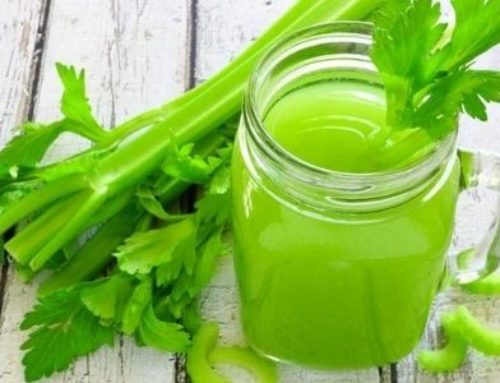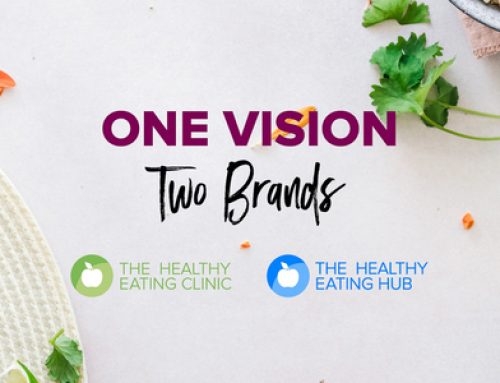 I’m going to be honest. I actually ate a bowl of ice-cream while watching this film.
I’m going to be honest. I actually ate a bowl of ice-cream while watching this film.
I had the opportunity to preview it before it’s out in cinemas next week (Monday 16th March). I don’t eat ice-cream very often, but when I do I thoroughly enjoy it. By about 15 minutes into in it, I decided that I didn’t want to finish my bowl…
Just a heads up, if you’re planning on seeing the film you won’t want to take your packet of TV Snacks and can of Coke. You will seriously regret it.
That Sugar Film, by Australian actor Damon Gameau, is a documentary about the effects of consuming high amounts of hidden sugar in our food supply. In a nut shell, it’s a vibrant, highly engaging documentation of a 60 day sugar binge that will leave you questioning many aspects of the way you view food and its role in our body and our health.
Damon, accustomed to eating low amounts of sugar in his regular diet, consumes the equivalent of 40 teaspoons of sugar per day for 60 consecutive days. But there’s a catch: he’s not allowed to meet his 40 teaspoon a day target through ‘junk’ foods like soft drink, lollies, chocolate and ice-cream. He can only eat foods with hidden sugar. These are typically low fat products and foods commonly thought of as ‘healthy’. This includes food like commercial breakfast cereals, flavoured yoghurts, muesli bars, dried fruit, fruit juice, jarred sauces and other packaged food or meal replacement style drinks.
After the two months on this high sugar diet, Damon finds that his body and health has been significantly affected. Biochemical tests show the initial signs of fatty liver, he puts on a total of 12kg and reports mood swings and a decline in his overall mental state.
The overall message of the film:
Be wary of foods that claim to be healthy (natural, low-fat, lite, etc) as they can be packed full of sugar and may be the reason why you’re struggling to lose weight or manage your health. Limiting your sugar intake could be the answer to your health woes.
I had the privilege of previewing the film a few weeks ago, in preparation for speaking at the Q&A screenings of the film on Monday 16th March in Canberra. I think the film makes some valid points:
- As a culture, we eat far too much processed food and as a result our overall sugar intake is too high. We could all do with being smarter about our food choices and eat foods closer to nature and less manufactured.
- A lot of the sugar we do eat is ‘hidden’ in foods and a lot of the time we don’t realise it’s there. For example, one tablespoon of tomato sauce contains one teaspoon of sugar. If you look at the ingredients of many processed foods, sugar (using a range of different terms and names) is often one of the top three ingredients.
- High sugar foods are easy to overeat and often leave us wanting more. The food industry has done a good job of making our food taste amazing. We need to be much more mindful with our food choices and strike a better balance with our foods. Seeking professional help from a nutritionist or dietitian is the best way forward.
I did have to wonder, though, why 40 teaspoons of sugar per day? According to Damon and guest presenter David Gillespie (author of Sweet Poison), this is apparently the amount of sugar that lots of Australians are consuming each day as part of their regular diet. According to the latest Australian Health Survey* the average sugar intake (from naturally occurring and added sugars) of Australians from all age groups was between 23 – 30 teaspoons (92-121g) per day. Now I’m sure that there may be some Australians consuming 40 teaspoons of sugar per day, but it’s certainly not all of us. I’m not entirely sure where they got that statistic from. Update: Check here to find out how they settled on 40 teaspoons of sugar per day.
 That being said, even 23 – 30 teaspoons of sugar per day is too much. The World Health Organisation (WHO) recently released new sugar intake guidelines for improving health and urges people to keep their intake to less than 10% of their overall energy intake. This equates to approximately 12 teaspoons or less of sugar per day.
That being said, even 23 – 30 teaspoons of sugar per day is too much. The World Health Organisation (WHO) recently released new sugar intake guidelines for improving health and urges people to keep their intake to less than 10% of their overall energy intake. This equates to approximately 12 teaspoons or less of sugar per day.
The same Australian health survey data also indicates that 46% of our total carbohydrate intake is from naturally occurring or added sugar sources, rather than starch or fibre that are more filling nutrients. This statistic is very indicative of a diet that is high in processed foods and low in fresh, whole foods, particularly fresh fruits and vegetables. The survey further confirms this to be true showing that 35% of the average Australian’s energy intake comes from discretionary foods – these are foods high in processed fats, sugar, salt and/or alcohol (cakes, muesli & nuts bars, juice, lollies, biscuits, chips, chocolate, soft drink, alcoholic beverages). Further delving into the average Australian diet shows we’re also not meeting the recommendation for fresh fruit and vegetable intake, with only 6% of adults meeting the guideline of five serves of vegetables and two serves of fruit per day.
When it comes to these so-called ‘health’ foods that Damon eats on his experimental diet, the label of healthy certainly doesn’t come from my recommendations as a nutritionist. Fruit juices, dried fruit, muesli bars, confectionary style yoghurts, smoothies, meal replacement drinks (Up & Go, Milo, etc) are all processed foods and should not form the majority of our dietary intake. As the film points out, the food industry has worked hard at claiming a ‘share of our stomachs’ with clever marketing and let’s be honest, adding sugar makes our food taste great! Food labelling laws mean that a manufacturing company can highlight key nutrients (iron, niacin, vitamin C, etc) making a product appear healthy, when in reality it could be highly processed, high in sugar, processed fats and salt. For the average person it’s hard to wade through the labelling and marketing messages.
Like Damon also mentions, when the low-fat recommendations came out in the 80s and 90s, the food industry responded with a range of low-fat products. These products met the recommendations for fat intake, but were high in refined carbohydrates, including sugar. It’s no wonder we’re so anti-carb these days – when low-fat didn’t help with the growing obesity epidemic, I guess we felt we needed to find another nutrient to blame. It was carbohydrate’s (which include sugars) turn.
While the kind of research that Damon conducted lacks the control and unbiased reporting necessary for good science, it does illustrate the difference between a diet rich in whole foods (fruit, vegetables, nuts, seeds, meats, eggs, etc) and one rich in processed foods. As a nutritionist, slowly shifting people from a highly processed diet to one that includes more vegetables and whole foods forms the majority of my daily work.
I think people should watch the film and I hope is stirs in them some thoughts and questions about their own diet, and is a catalyst to change for the better.
Regardless of whether Damon’s experimental diet mimics the Australian diet or not, I am 100% certain that we could all make some improvements to our diet from a sugar and processed food perspective.
I wouldn’t, however, blame all of Damon’s health declines purely on sugar. Yes, he ate a stack load and it was definitely too much, but according to his book, That Sugar Book, Damon actually changed many aspects of his diet, not just his sugar intake. Without an accurate food diary I can’t make exact conclusions, but based on the information he provided in the book his experimental diet was much higher in processed foods, lower in fresh vegetables, lower in healthy fats and subsequently lower in dietary fibre and nutrition. There are just too many factors at play here and it would be naive of any scientist to make conclusions about sugar when other elements of his diet were not controlled.
For starters, we know that dietary fibre plays a big role in blood lipid profiles, the rate of delivery of sugar into our blood stream and gut bacteria profiles. All of these factors influence sugar metabolism and subsequent health outcomes. The other point I’d make would be about vegetables. There is substantial evidence that suggests a diet meeting the Australian Dietary Guidelines for five serves of non-starchy vegetables a day, independent of other dietary factors, decreases one’s risk of death from cardiovascular disease or cancer by 20%. Most likely, this occurs because of the fact that they offer low levels of energy and high levels of fibre, vitamins, minerals and antioxidants.
My one critique of the film, as a nutritionist, is that I disagree with the approach of focusing on individual nutrients, like sugar, rather than a focus on food as a whole and overall diet quality. We don’t eat nutrients in isolation, we eat food and food is a mixture of nutrients in varying proportions. Focusing on individual nutrients can be counter-productive and confusing.
Sugar is a naturally occurring nutrient and these recent recommendations via other mediums to ‘quit’ it have left many people unnecessarily worried, often limiting foods such as fruit, some vegetables and dairy all because they naturally contain sugar. Over the many years I’ve been practicing, I’ve had countless people sit in my office confused about quitting sugar and severely lacking in the knowledge of what to eat instead. With a message such as: ‘eliminate sugar’, it’s important that the type of sugars that need eliminating are clearly articulated. If you have to go to that much detail to deliver your message, it easily gets lost on the masses.
Recommending that someone reduce their sugar intake has a number of limitations. It doesn’t address their fibre intake, their fat intake, their vegetable intake or their overall diet quality. Like any dietary philosophy that involves cutting out foods or nutrients (paleo, vegetarian, vegan) you can have a healthy version of this eating pattern or an unhealthy version.
A better recommendation, in my opinion, that has less ‘technicality’ would be to encourage people to eat five serves of vegetables a day, two serves of fruit per day and aim for the majority of their diet come from foods that are unprocessed (meat, nuts, seeds, legumes and high fibre grains).
When we start looking at sugar or fat, or any other nutrient for that matter, we have to specifically indicate that some types are ‘good’ and some are ‘bad’, when in reality, good nutrition is about overall diet quality and what foods you eat regularly rather than individual foods or nutrients being the culprit. Some foods are just more nutritious than others and the best evidence for long term good health is a diet rich in whole, fresh vegetables and fruits.
If you can, go see the film, let it prompt questions about your own food choices and if you could make them better or not. Confused? Seek advice from a nutritionist or dietitian to find whats right for you.
*Statistics taken from The Australian Bureau of Statistics (ABS) Australian Health Survey Data
That Sugar Film Details:
Website: https://www.thatsugarfilm.com/screenings/
Date & Time: Monday 16 March – multiple Q&A screenings – Kate Freeman is on the panel. See their website for details and to purchase tickets.
If you’d like further help with your nutrition please click below:




